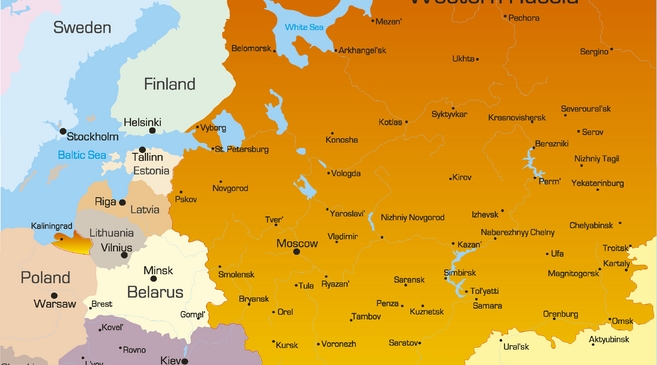
How to help Russia
Almost ten years after the collapse of Soviet Communism, most Russians accept that power should change hands through the ballot box, and that they need some sort of market economy. And yet their view of the world is very different from that of most Europeans or Americans.
The Russian people are extremely cynical about the virtues of democracy and capitalism, which is hardly surprising, given that in Russia they have been linked to corruption and gangsterism. Nor do many Russians share western views on the importance of human rights. For example they do not accept that there is any such thing as a "humanitarian war". Tell most Russians that NATO went to war with Serbia so that a million Kosovars evicted from their homes could return to them in peace, and they will not believe you.
Most westerners find the Russians' conduct of their war in Chechnya hard to stomach. They accept Russia's right to maintain its territorial integrity, but they are shocked by its apparent indifference to civilian casualties and its refusal to negotiate with the Chechens. When EU governments wage war - such as against Serbia - they have to balance the desire to defeat the enemy with the desire not to shock public opinion at home or abroad.
Furthermore, the fact that Russia still suffers from delusions of imperial grandeur makes it a prickly partner for the West. Russia believes that its size and nuclear arsenal entitle it to be treated like a superpower - even though its economy is not much larger than Belgium's and its diplomatic influence in most parts
And yet, despite all the difficulties, the West has a profound interest in helping Russia to strengthen its economy, its democracy and its civil society. The more the West can engage Russia, the more Russia is likely to lean westwards. That is why sanctions - such as those imposed by the EU in January, on account of the Chechen war - are unlikely to do any good. The nationalists who see the West as the enemy are more likely to flourish in a Russia that is isolated.
The west can achieve more with carrots than with sticks. It needs to offer Russia an important place in Europe's security order. For a while it looked as though the Permanent Joint Council (PJC), a forum where NATO and Russia could debate common concerns, might give Russia such a role. But even before the Kosovo conflict, the Russians had become disillusioned with the PJC, complaining that NATO would not allow it to discuss important issues. Since that conflict the Russians have become so anti-NATO that there is not - for the time being - much that the alliance can do to engage Russia.
Which leaves the EU as the only serious organisation which can fulfil that task. Most Russians do not instinctively dislike the EU, though they know little of it. It helps that America is not a member. Russia and the EU already have a "partnership and co-operation agreement", which has established regular political contacts and removed trade barriers (the EU now takes 40 per cent of Russia's exports). However, the EU's Tacis programme of technical assistance is unpopular with Russians, because it is poorly managed and because they are seldom consulted on how the money is spent.
The EU should offer Russia the prospect of a deeper, richer kind of co-operation, culminating in associate membership. Russia could take part in many EU activities, such as the co-ordination of work against drugs trafficking, organised crime and terrorism, or some environmental policies. It could attend some foreign policy meetings, for example when matters of common concern - such as the Balkans - were discussed. As soon as Russia is ready to accept the disciplines of the single market, it should be encouraged to join the European Economic Area (which consists of the EU, Iceland and Norway). Visa restrictions on Russians, currently onerous in many EU countries, should be relaxed.
The Commission should hive off Tacis to an independent agency, in which Russians would have a voice. A prime task of an enlarged Tacis should be to organise a massive exchange programme, modelled on the EU's existing (and successful) Erasmus and Socrates programmes of student exchanges. If more Russians understood the West better, they would be less suspicious of it. So Tacis should pay for stints in the West - including language training - for tens of thousands of business people, academics, journalists, students, lawyers, public servants and NGO workers. Tacis should also send smaller numbers of westerners to Russia, so that they understand it better.
The EU governments can also convince Russia of their goodwill by helping its aerospace and defence industry. Russia can offer the rest of Europe some good technology and cheap labour - but it needs assistance with electronic systems and marketing. There is scope for mutually beneficial co-operation in some less sensitive areas, such as military transport planes (as favoured by many Germans) or civil aircraft.
The EU will find any attempt to develop a true partnership with Russia heavy going. But it has little choice. They share a common frontier - which will lengthen as EU enlargement proceeds - and thus common interests. Working when appropriate with NATO and the Americans, the EU can do a lot to help the Russians to feel included in Europe's political and economic order.
